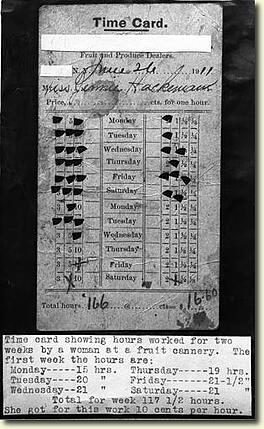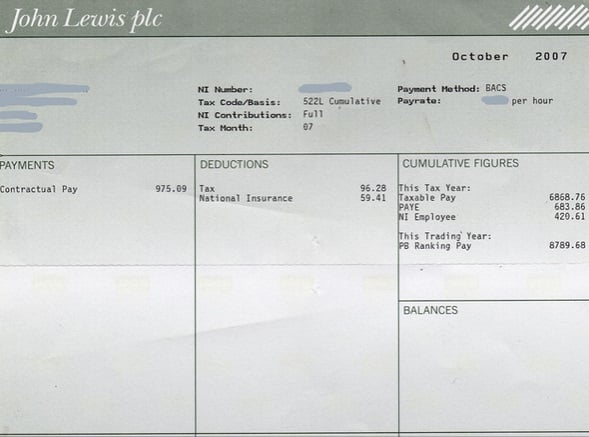4 Tips for Dealing with Uncashed Paychecks and Avoiding Legal Problems
Posted by Jake Richardson Jan 19, 2015 8:44:00 AM on
Have you ever dealt with an uncashed employee paycheck? For a variety of reasons employees might not claim a paycheck, though it isn't that common. Each state has some version of an unclaimed property law that addresses what to do. An uncashed paycheck is considered a financial asset and abandoned property. In California, for example, unclaimed property is that which has been left inactive for three years.
Generally speaking, if a check has been unclaimed for three to five years it becomes state property. At this point it is the state that keeps the check and provides a means to the public so it can be searched for and claimed.
The point of the Unclaimed Property Law is to prevent unclaimed property from being used by people other than the owner for their own gain.
To use California again, businesses there are required to annually review their financial records for uncashed checks. If they identify any, there is a process for reporting them to the state. The State Controller’s Office (SCO) is responsible for collecting abandoned property reports and making this information available to the public, so individuals can claim their property.
While these situations don't come up too often, a business still needs to have some policies and procedures in place should the situation arise.
1. Payroll Manager Uses ‘Ghost Workers’ to Embezzle $480,000
We've written a couple of posts about fraud as it relates to timesheets and overtime pay. This one is about what happens when management level employees, like a payroll manager embezzle money.
Grady Memorial is the largest hospital in Georgia and the main public hospital for the city of Atlanta. It employs about 5,000 people, so that is a considerable payroll to manage. The thing is, a former director of payroll did a little more than manage it. He was convicted of embezzling $480,000 from the hospital. For several years, he oversaw payroll for all employees and he knew the internal payroll system well. With his administrative system access he also falsified vacation and severance pay records for employees that had been terminated.
Topics: payroll time tracking, fraud
$2 Million Dollar Fraud Results From Paycheck Selfies
Posted by Jake Richardson Jan 5, 2015 9:04:00 AM on
Printed Paychecks are a Security Hole? Really? Yes, Really.
Go to Google and do an image search for “my first paycheck,” then come back to finish this article.
Okay, wasn’t that amazing. What you saw was hundreds of smiling employees posting an image of their first paycheck. If you search for “my last paycheck” you’ll see more.
Perhaps you’re now wondering whether you have a policy in place so that employees don't take a selfie holding their pay check and sharing it online.
Good. This is the article for you. Read on.
In a recent national news story, a Minnesota woman posted a selfie photo on Instagram holding her paycheck. Zoom in a little on the photo, and you can clearly can see the company’s bank account number!
Criminals gathered the information and used it to create counterfeit checks against her employer's bank account.
Topics: contractor timesheet
The holidays are about many things and in particular what seems to make them meaningful is giving. Generosity has been linked to terms like meaning and purpose, but not only at the level of concepts or language. Research has shown that people who experience a sense of purpose in their lives might live longer.
Princeton University, Stony Brook University and University College London (UCL) researchers studied over 9,000 adults with an average age of 65. They found that the ones with the greatest well-being had a 30% less likelihood of dying. Meaning and purpose have been said to be a part of well-being. In other words, experiencing fulfillment in life is tied with what one experiences as meaning and having a sense of purpose. Contributing something positive and seeing an impact improves well-being.
We probably have all had some experiences where we received money or some material object, and yet it turned out to be accompanied by an emptiness.
Christmas has been criticized at times for being overly commercial, so one way people make it more meaningful is by focusing on giving rather than trying to maximize their own gains. Here are 5 giving stories for this holiday season.
How Not to Waste One Million Dollars on Time Clocks
Posted by Jake Richardson Dec 19, 2014 9:12:00 AM on
Sad Story of Hawaii Department of Education
Picture nearly one million dollars worth of brand new time clocks still in boxes stacked in a break room. They were purchased in 2010 by a state government department in order to track employee work efforts better.
However, when it was noticed that the time clocks also needed software and cables to connect them, plus labor to configure the system and getting it running correctly, it was decided not pursue the project any longer!
Topics: Timesheet Software
How To Create and Manage HR and Payroll Service Level Agreements
Posted by Jake Richardson Dec 16, 2014 10:27:00 AM on
It might take some time to find a great guide for setting up an effective service level agreement if you were to search online.
So we found it for you!
How to Establish Service Level Agreements by Naomi Kartin
This document is a 33 page excerpt of one of her e-books. We summarized it here in this article, so you can get an overview of it. Ms. Kartin also has an e-book about how to set up a service level agreement.
For the purposes of this article, we will focus on an SLA between HR and Payroll staff. After reviewing many HR Payroll SLAs, we concluded that many of these SLAs (particularly in the non-profit and education sectors) are not SLAs at all. Instead they are procedure or operations manuals masquerading as SLAs. Lists of procedures, i.e. how to do things and when they are to be done, are not service level agreements. They are items you would find in an operations manual. These are non-negotiable items.
Timesheet Software History: Improving Business Operations
Posted by Jake Richardson Nov 20, 2014 8:17:00 AM on
It All Started With IBM
IBM resulted when several companies merged. They were Computing Tabulating Recording Company, ITR, Bundy Manufacturing and two others. If you recognize the name Bundy, you probably know Bundy invented the first or the first most common mechanical time clock. In an 1890 patent, Bundy described time recording for workers from other devices, but his allowed each worker to have her or his own key. Many people today still remember physical timecards that were stamped by a mechanical clock with time in and time out numbers and dates to document employee hours worked. When you consider the history and that IBM formed in 1911 in relation to this type of technology, it can be a fascinating subject.
The ability to automate the counting of employee time to produce reliable, accurate payroll systems was a great boon to business, because employee time cards had to be hand counted and processed, which introduced errors. Some employees were overpaid, others were underpaid. Accuracy in employee payments systems surely made businesses operate more smoothly and helped with employee relations as well.
It would be over sixty years later that a punch card system would be connected to a computer processor. The Zilog Z80 was a microprocessor used in the 1970s for desktop computing and some military systems. Zilog was founded by a former Intel employee who had worked on the 8080, and similar microprocessor. The Z80 wound up becoming one of the most popular CPUs. It's an obvious point to anyone now that desktop computing had many advantages of mainframes-mainly lower maintenance costs and miniaturization.
3 Employee Timesheet Fraud Cases: The Brazen and Bold
Posted by Jake Richardson Nov 18, 2014 7:56:00 AM on
Timesheet fraud is distressing because of the money that companies lose, but also due to the breaches of trust that occur. A research study conducted by the Association of Certified Fraud Examiners found that the average act of occupational fraud, where an employee embezzles money from his or her employer, resulted in organizational losses of about $60,000 per incident.
Employee timesheet fraud, a reportedly more pervasive problem, can result in similar losses. While nobody wants to make news for committing timesheet fraud or going to jail, there are countless stories every year. Here are three doozies.
Management-Directed Timesheet Fraud
When executives are involved the fraud can be much greater. One former software CEO of Saba, a talent management software company, was ordered by the SEC to refund $2.5 million dollars in bonuses and stock options because two of the company’s Vice Presidents cooked up a plan to have customer service reps and consultants working abroad falsify their timesheets, or to not report time they worked. The false timesheet data significantly affected financial results. The SEC found that the software company submitted false financial data, to the tune of about $70 million dollars over a five year period.
Overtime Pay Not So “Clever Tricks” and Ruby Tuesday
Posted by Jake Richardson Oct 14, 2014 9:00:00 AM on
There are stories every week of how companies get sued because they violated overtime laws. Then there are stories that really turn your head. This is the story of how major restaurant chain, “Ruby Tuesdays,” brazenly violated overtime rules in several ways.
Ruby Tuesday’s managers apparently thought they could avoid overtime liability by using a scheme that discouraged proper overtime documentation by employees. Ultimately, a class action law suit against the company cost them $3 Million (a lot of legal fees) and bad publicity with customers, current, former and potential future employees.
Topics: Overtime tracking
Management Lessons from Golf’s Ryder Cup: The Future of High-Performance Teams
Posted by Ron Kfoury Oct 9, 2014 11:27:00 AM on
Ryder Cup History
The Ryder Cup has had a bizarre history. Started by Englishman Samuel Ryder in 1927, it was at first a gloried golf exhibition between a team of the best U.S. golfers and a team of English players that competed every two years for custody of a small gold trophy. For the first 50 years, the Americans dominated the contest with a mind-numbing string of U.S. victories (22 of 25 from 1927 to 1983). By 1979, the golf powers-that-be agreed to use golf-legend Jack Nicklaus’s suggestion to expand the down-trodden English team (which by then had marginally expanded to include the Republic of Ireland and Northern Ireland) to now include all of Europe. “Team Europe” was often depicted by the American press as a rag-tag band of hard-drinking, lower-ranked journeymen golfers, who were impossibly supposed to come together and form a winning team from eight or nine different countries with no common language or culture. It took a few years, but somehow the Europeans started to beat the Americans. Again and again and again.
Topics: teams, team building, management











